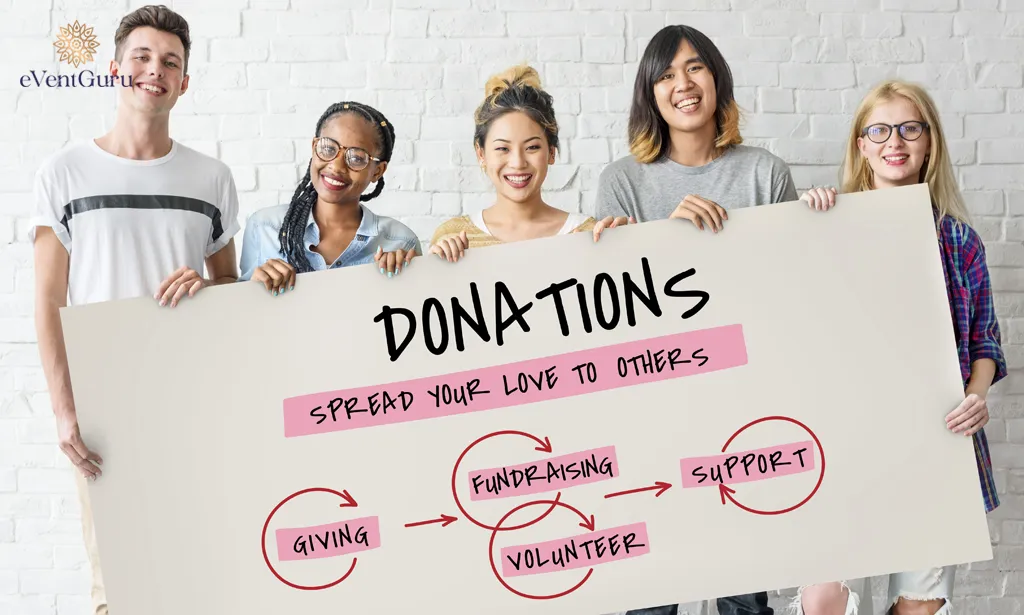Planning a successful fundraiser event is both an art and a science. It involves strategic planning, effective marketing, and seamless execution to captivate your audience and drive donations. According to a report by the Charities Aid Foundation, 55% of donors worldwide prefer giving to NGOs and nonprofits that clearly demonstrate the impact of their donations.
A Guide to Planning a Successful Fundraising Event
A great way to raise funds is through fundraising events. These events are a great way to attract donations and engage patrons in the institution. This guide will walk you through the intricate process of creating a memorable and impactful fundraiser event. Buckle up, and let's dive right in!
1. Understanding Your Cause and Setting Goals
The first step to a successful fundraiser event is clearly understanding your cause. This will help you convey a strong message and connect emotionally with your potential donors. Answer these questions:
- What is the cause you're raising funds for?
- How will the funds be used?
- How much money do you aim to raise?
Set SMART (Specific, Measurable, Achievable, Relevant, and Time-bound) goals for your event. For example, if you're raising funds for a school building, your goal could be "Raise $10,000 in 2 months to fund the construction of two classrooms."
2. Crafting Your Budget
A well-defined budget is the backbone of any successful fundraiser event. Remember, the goal is to maximize funds raised while minimizing costs. Consider these components while creating your budget:
- Venue cost
- Catering
- Decorations
- Marketing expenses
- Staffing costs
Try to get sponsorships or in-kind donations to lower your expenses. A handy tip is always to keep a contingency fund for unforeseen costs. According to the Nonprofit Research Collaborative, 65% of organizations met their fundraising goals by managing their budgets and resources effectively.
3. Choosing the Right Event Format
The event format plays a critical role in the success of your fundraiser. It should align with your cause, audience, and budget. Here are a few popular formats:
- Charity runs or walks
- Silent auctions
- Benefit concerts
- Online fundraisers
Remember, engaging your audience and creating a memorable experience is key. For instance, an interactive format like a charity run could be a hit if your donors are young professionals.
4. Designing an Engaging Event Program
The program for your fundraiser event is its heart and soul. It's the reason why people are attending. To keep your attendees engaged, make sure your program is interactive and meaningful. Here are some tips:
- Incorporate stories: Share success stories or testimonies related to your cause. Stories stir emotions and can drive people to donate.
- Involve attendees: Arrange activities where attendees can participate. For example, if it's a fundraiser for an animal shelter, you can organize a pet show.
- Recognize donors: Acknowledge and appreciate your donors' contributions. You could set up a 'wall of fame' or give a shout-out to major donors during the event.
5. Marketing Your Fundraiser Event
Marketing is key to getting the word out about your fundraiser. Here are some effective marketing strategies:
- Leverage Social Media: Share engaging posts about your cause and the upcoming event. GlobalWebIndex says an average internet user has more than 8 social media accounts. This makes social media a powerful tool to reach potential donors.
- Email Marketing: Send personalized emails to your supporters, giving them event details and compelling reasons to attend.
- Collaborate with Influencers: Collaborate with influencers who resonate with your cause. Their endorsement can significantly boost your event's visibility and credibility.
6. Ensuring Smooth Event Execution
Proper execution is the final step toward a successful fundraiser event. Here are some points to ensure a smooth event:
- Plan in advance: Make a detailed timeline of the event and assign responsibilities to your team members.
- Rehearse: Do a rehearsal a day before the event to ensure everything works as planned.
- Have a backup plan: Be prepared for last-minute changes or issues. If you're hosting an outdoor event, ensure a backup indoor venue in case of bad weather.
Remember, the success of your fundraiser event ultimately depends on the impact it creates on your attendees. Make it a day they'll remember and more likely to support your cause. If you need help organizing and marketing your fundraiser event, check out eVentGuru, a platform that brings ease and expertise to your event planning and execution.
Also Read: Some Creative Fundraiser Event Ideas
Key Takeaways
- Understand your cause and set SMART goals.
- Craft a budget, considering all potential expenses.
- Choose an event format that aligns with your audience and cause.
- Design an engaging program that keeps attendees involved.
- Market your event using social media, email marketing, and influencers.
- Ensure smooth event execution with proper planning and rehearsal.
Frequently Asked Questions About Successful Fundraiser Event
While all aspects are crucial, understanding your cause and setting clear goals is the first step. It helps you communicate effectively with potential donors and gives you a benchmark to measure your event's success.
Effective marketing is key to attracting attendees. Leverage social media, send personalized emails to your supporters, and collaborate with influencers who resonate with your cause.
Design an interactive program. Share success stories, involve attendees in activities, and acknowledge your donors' contributions during the event.






